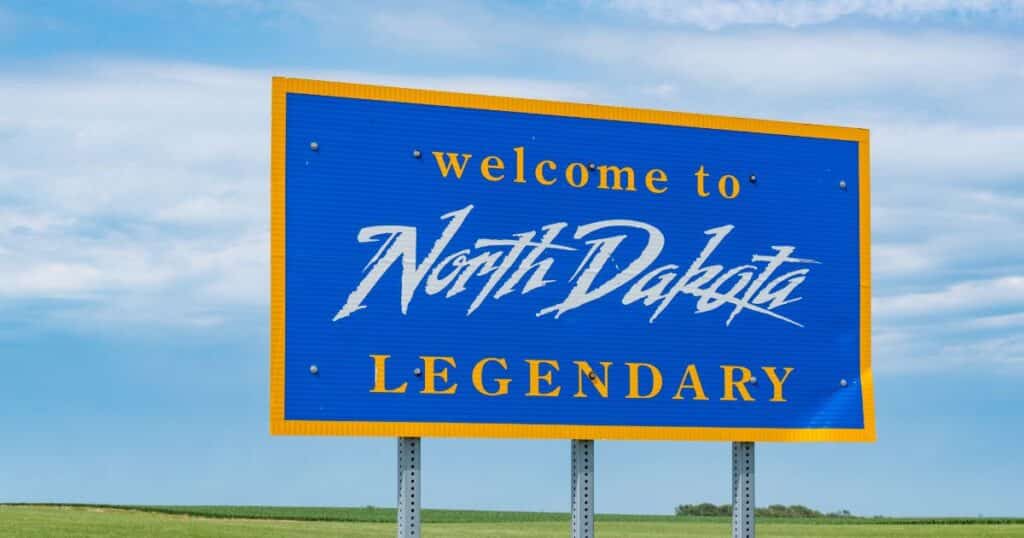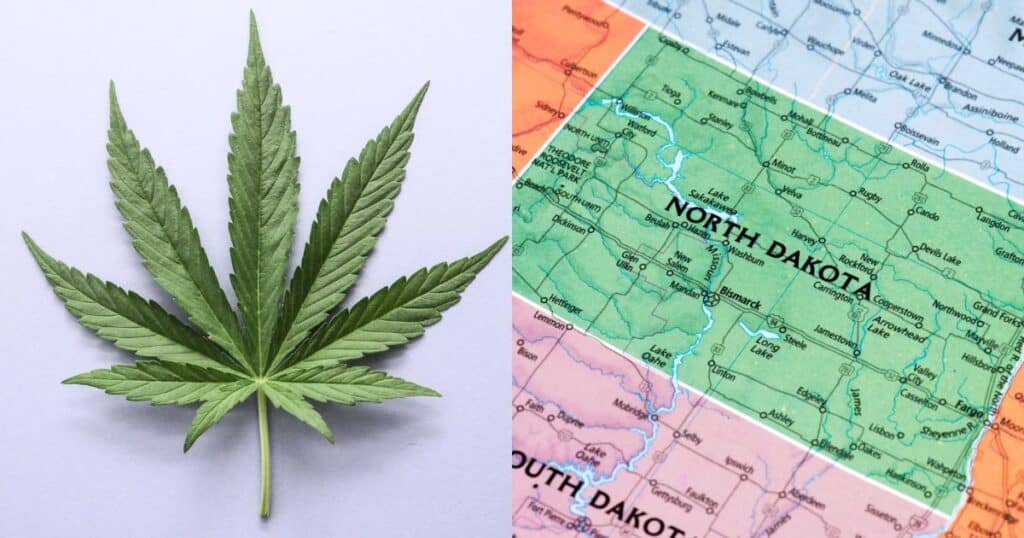Cannabis legalization is once again a hot topic in North Dakota. This November, voters will have the opportunity to cast their ballots on a measure that could significantly alter the state’s legal landscape. The initiative, led by New Economic Frontier, aims to legalize recreational marijuana for adults 21 and older.

North Dakota Attempts Passing Cannabis Legalization Again
North Dakota has seen multiple attempts to legalize recreational marijuana. Voters approved medical marijuana in 2016, but recreational initiatives were rejected in both 2018 and 2022. This initiative will be the third attempt. Despite these setbacks, advocates for legalization have remained undeterred. The measure, spearheaded by New Economic Frontier, has qualified for the November ballot after securing nearly 19,000 valid signatures, state officials confirmed Monday.
The proposed measure would allow adults 21 and older to use recreational marijuana in their homes and, if permitted, on private property. It outlines specific regulations for production, processing, and prohibited uses, such as public or vehicular consumption. The measure also permits home cultivation of cannabis plants under certain conditions.
Possession Limits
- 1 ounce of dried cannabis flower
- 4 grams of cannabinoid concentrate
- 1,500 milligrams of total THC in a cannabis product
- 300 milligrams of an edible product
Home Cultivation
Up to three cannabis plants per individual, with a maximum of six plants per household
Sales and Licensing
- 18 marijuana stores statewide
- 7 manufacturing facilities
- One manufacturing facility and up to four stores per vertically integrated business
Arguments for North Dakota Cannabis Legalization
Advocates of the measure, including Burleigh County Commissioner Steve Bakken, argue that legalizing cannabis will free up law enforcement resources to tackle more pressing issues like the opioid crisis. They also believe that a regulated cannabis industry could bring economic growth and job opportunities to the state.
Also, a legal cannabis market could diversify North Dakota’s economy, creating new revenue streams and business opportunities. Existing medical marijuana businesses would be able to sell recreational products, further boosting their profitability.
Proponents emphasize that a regulated market for adult-use cannabis is safer and more effective than prohibition. By setting clear guidelines and limits, the state can better control the distribution and consumption of cannabis, reducing the risks associated with illegal sales.
Despite the potential benefits, the measure faces significant opposition. Organizations like the Brighter Future Alliance argue that legalizing recreational marijuana could lead to increased crime, DUIs, and drug trafficking. They point to the experiences of other states where legalization has had mixed results.
Opponents also highlight that North Dakota voters have rejected similar measures in the past. In 2018 and 2022, recreational marijuana initiatives were defeated by substantial margins, indicating that a majority of residents may not support legalization.
Road Ahead for North Dakota Cannabis Legalization
Despite challenges, the New Economic Frontier campaign is optimistic about the measure’s chances. They are focusing on educating voters about the potential benefits of legalization, emphasizing economic growth, regulatory control, and easier access to medical marijuana.
State Rep. Matt Ruby, a member of the sponsoring committee, has stated that the campaign’s priority is to inform voters about why this measure is a positive step for North Dakota. The goal is to address concerns and misconceptions while highlighting the benefits of a regulated cannabis market.
Recent polling suggests that the measure may face an uphill battle. A survey by the Brighter Future Alliance found that 57% of likely voters oppose legalization, while 43% are in favor. However, the campaign remains hopeful that increased awareness and education efforts will sway public opinion.
If voters approve the measure in November, the state will begin implementing the new regulations by October 1, 2025. The Department of Health and Human Services (DHHS) or another designated agency will oversee the licensing and regulation of the cannabis market.
The measure includes a detailed timeline for rolling out the new regulations:
License Applications
Existing medical marijuana businesses can apply for dual-use licensure to serve both medical and recreational markets.
Regulatory Framework
The DHHS or designated agency will establish rules for the new market, ensuring compliance with state laws and safety standards.
Market Launch
The first recreational cannabis sales could begin by late 2025, providing ample time to set up the necessary infrastructure and regulations.
The upcoming vote on cannabis legalization in North Dakota represents a significant opportunity for the state to modernize its approach to cannabis regulation. While the measure faces opposition, its proponents are confident that a well-regulated market can bring economic benefits and improve public safety. As North Dakotans prepare to cast their ballots, the outcome of this vote could have lasting implications for the state’s legal and economic landscape.
















